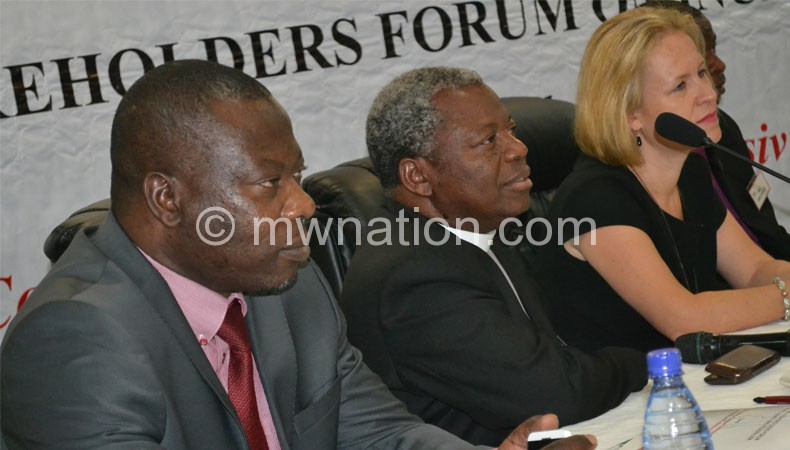PAC holds forum on federalism

The Public Affairs Committee (PAC), an inter-faith democracy watchdog, on Monday opened a two-day stakeholders forum on inclusivity and federalism debate with an observation that the debate currently lacks constructive and coordinated approach.
PAC said with federalism gaining currency at different levels of society, it is time conversation on the matter was enhanced in many parts of the country through an informed debate on issues to do with federalism and inclusivity to avoid a violent conflict and polarisation of the country.
PAC chairperson the Reverend Dr. Felix Chingota made the call on Monday at Sunbird Mount Soche in Blantyre at the opening of a two-day national stakeholders forum on inclusivity.
Said Chingota: “Several vices have been noted ranging from nepotism, regionalism and tribalism to lack of basic understanding on the concept itself and how it works. Many commentators have made their positions without appreciating the different forms of federalism.
“The 2014 post-electoral period witnessed various calls from various quarters. Apart from calls for federalisms as alternative route, demands for reviewing the Constitution and electoral laws have gained ground among various stakeholders.”
Making a statement at the forum, United Nations (UN) resident coordinator Mia Seppo said the UN does not have a position on federalism, but rather its support is to ensure that the discussion on federalism is informed by governance expertise and cognisant of Malawi’s 20 years of efforts on decentralisation and devolution functions.
“The UN respects and upholds the primacy of national actors in conversations on national issues as this is in line with the rights enshrined in the Universal Declaration of Human Rights: freedom of expression and opinion; freedom of peaceful assembly and association; and the right to take part in government,” said Seppo.
Garton Kamchezera, a law professor at Chancellor College, a constituent college of the University of Malawi (Unima), standing to make a contribution at the forum, said while the debate on federalism is still going on, it is important for every person to ask certain questions such as why the debate is hot and arising now as in the end, people can find out that maybe it all has to do with allocation of resources.
Presentations on the first day came from Dr. Henry Chingaipe who presented on conceptual framework of the State; former programme manager of the Decentralisation Secretariat, Willie Samute, who presented on History of Devolution in Malawi; Milton Kutengule who presented on State of Affairs on Decentralisation and Professor Assefa Fiseha from the Centre for Federal Studies, College of Law and Governance, Addis Ababa University in Ethiopia, who made a presentation on ABC of Federalism and Challenges of Nation States.
The stakeholders’ forum has brought together members from the clergy, civil society, traditional leaders, city mayors, donors, politicians and advisers to President Peter Mutharika.
According to Chingota, at the end of the stakeholders forum, participants will map a way forward as whether to conduct another meeting, take the resolutions to the President and take the resolutions to a referendum.
Last month, a poll conducted by The Nation on legislators over a two-week period early this month found that if a bill were introduced in the National Assembly on whether or not Malawi should be a federal State as others advocate, 61.5 percent of members of Parliament (MPs) would reject it.
Of the respondents, 75 MPs (61.5 percent) said they would vote against federalism while 30 MPs or 24.5 percent said they would support it and 17 MPs (14 percent) were undecided.





